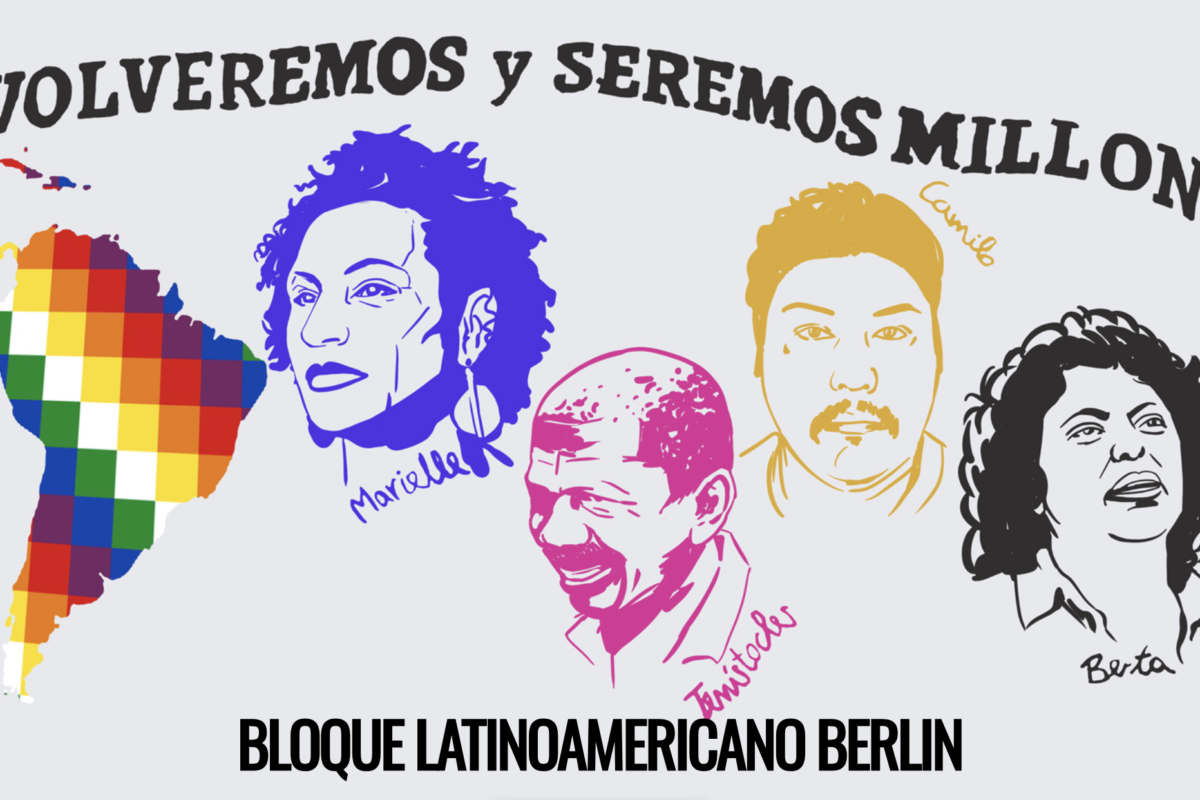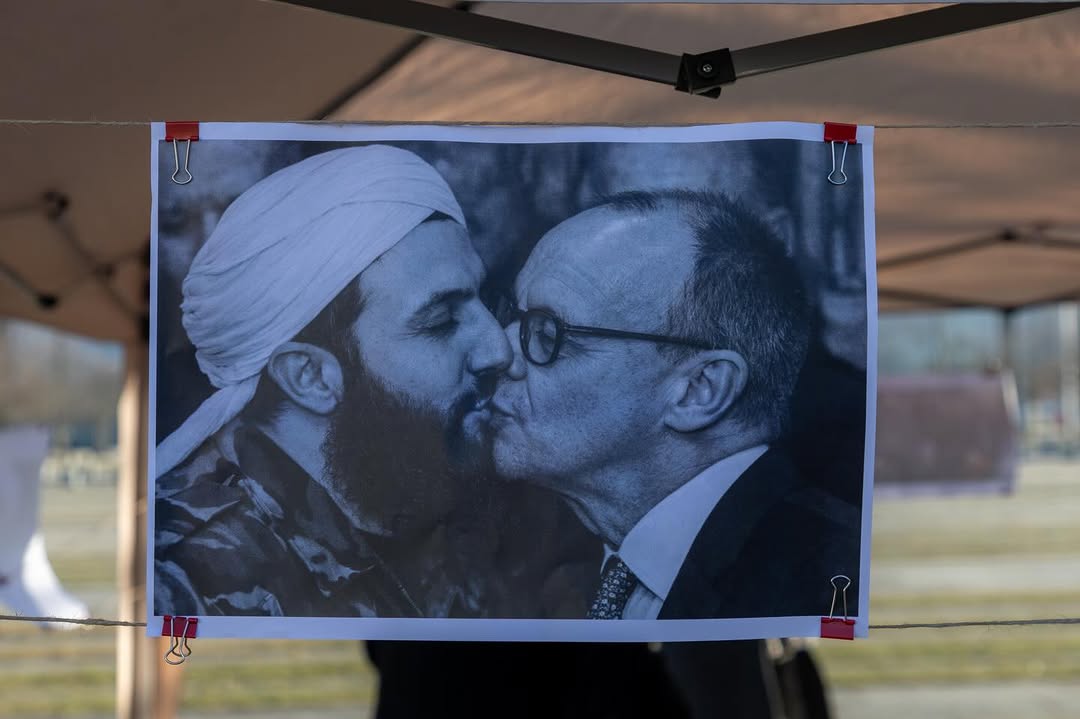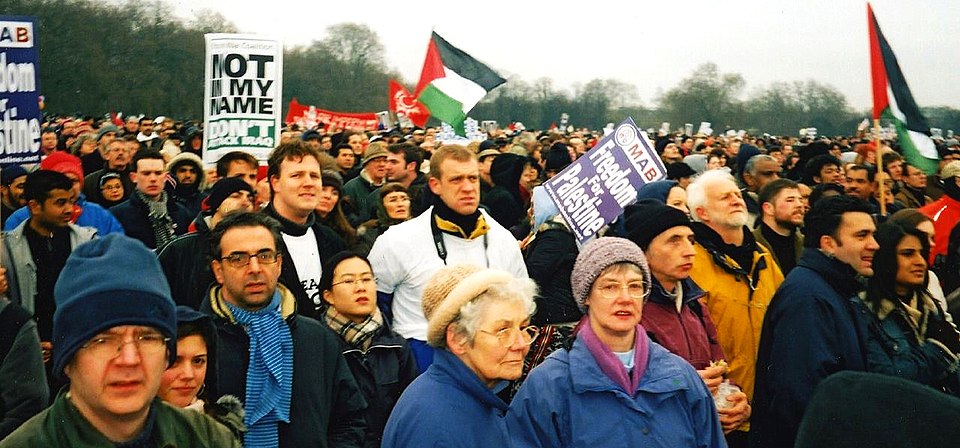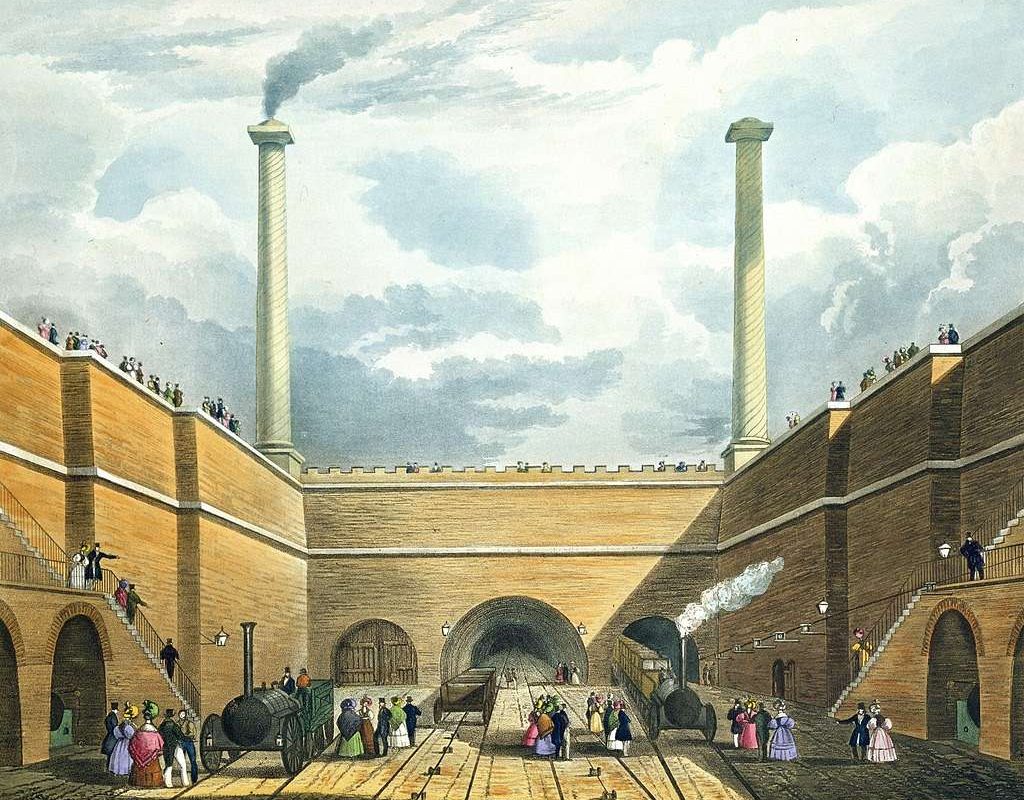This manifesto is from the Bloque Latinoamericano, which has been translated by The Left Berlin team. We will be publishing it in three parts; this is part 2.
Political-Ideological Perspectives
In this chapter, we will try to condense how we understand ourselves in terms of being a migrant organization and how we understand our fundamental axes of intervention. These axes include migrant self-organization in Berlin, political and solidarity work with Latin America (Abya Yala), and how all these dimensions are crossed by a transfeminist vision of our political work. We also outline how we could think about a transformation of our society and how we understand ourselves as part of a broader movement in this territory.
The Migrant Perspective
Migration is a reality that has existed since the beginning of humanity. Although the reasons for migration are many and varied, we know that in the majority of cases, people migrate to improve their living conditions (to escape precariousness, wars, dispossession, and so on). For this reason, we believe that there should be conditions to migrate freely and with dignity.
This reality is shaped by the global division of economic-military power, where there is a world center that, through the dispossession of the periphery, has accumulated enough wealth to guarantee its hegemonic position, and the dependence of other territories. This same global division of power is also sustained by the racist structuring of societies. For this reason, when we migrate, we often find ourselves in an economically precarious situation and are more acutely confronted with racism.
We believe that the experience of migration allows for a critique of the current world order, and requires us to think about different ways of relating to each other and to organize in order to achieve this. Although migration does not necessarily imply that people want to fight for a better world, it generates a common and collective experience of oppression that has the potential to be politicized. Migration is a global reality, therefore, resolving the injustices that surround it is a task of structural transformation for all those who fight for social transformation, not just for those who migrate.
The Latin American Perspective
The migratory experience and the experiences of struggle in Latin America-Abya Yala constitute the place of enunciation of the Bloque as a political organization. In other words, although not all of our members have migrated or participated actively in Latin American social movements, this is the perspective from which we analyze the reality we live in today and seek alternatives to build a new system.
We understand ourselves as children of the resistance of a colonized territory. Ever since the ruling European classes established their dominion over our territory with a system based on slavery, we have experienced incessant political and military interventions in the development of our lives. Migratory processes are entirely intersected by the violence that US imperialism – in complicity with the European Union – which unceasingly installs in our bodies and in our territories.
In this sense, Bloque Latinoamericano tries to make a political synthesis that will help us transform the reality of the here and now, with our feet on the ground we stand on, but without forgetting where we came from and how we can rethink and understand ourselves in a broader movement that is trying to transform this unjust reality.
How we understand solidarity with Latin America – Abya Yala
We see solidarity with Latin America-Abya Yala as a political driving force in our daily work. It is active and stems from the conviction that we all deserve to live a life without exploitation of our bodies/territories.
Unlike charity, solidarity arises from a horizontal consciousness that takes the form of support for the struggles of workers, of indigenous peoples,* of racialized people, of the defense of territory, of women and sexual dissidents.
* In different Latin American territories, “indigenous peoples” or “native peoples” are used to refer to the communities of origin in the American territory – survivors of the European colonizing genocide and white-nationalist extermination.
Our solidarity is politicized and comes from a commitment with the territorial struggles of Latin America, understanding its global complexity in the current framework of economical interactions between states, and their colonial and imperial heritage – the latter in order to understand the governing geopolitical logic that is at the root of the problems with which we stand in solidarity.
As a migrant collective, we seek to develop our own vision of the issues we address, and to be a voice on the local German scene that not only amplifies Latin American voices, but also contributes to the intertwined struggles of both continents. This implies being active participants in the discussions taking place in Germany with a voice that comes from our collective experiences.
We also recognize the importance of developing political ties with organizations in Latin America-Abya Yala in order to materialize solidarity in actions that either improve visibility or help to foster the exchange of contacts, alliances, and resources. This way, we can approach social processes that have the potential to mobilize people, both migrants and non-migrants, maximizing our capacity for impact. However, it is essential for us to move away from the paternalistic logic of “North-South” aid, as well as from academic readings and interventions that treat struggle abstract, distancing it from its materiality by focusing only on the rhetorical dimension without corresponding action.
How we understand the struggle against the precarization of life
We believe that politicizing our precariousness means understanding it in the context of a broader system, namely the neoliberal capitalist system that drives many of us to migrate and turns us into cheap labor in Germany.
To speak of capitalism is also to think of its historical dimension: in the past, capitalism used to exploit us fundamentally by appropriating our hours of work, so it could be accumulated by a few who concentrated wealth. Today, capitalism not only takes over our work (waged or unwaged), but also exploits all levels of our lives in order to continue reproducing itself: our housing, our education, our health, our body, our thoughts, and our desires. This translates into a shift from the exploitation of workers mainly in their formal workplaces and reproductive labor to a capitalism that is rooted in all the social ties of our existence.
The precarization of life, meaning the advance of capital over life, is a global phenomenon that affects the working classes all over the world. However, this phenomenon affects those of us who migrate to the countries of the center in a particularly strong way. Numerous bureaucratic obstacles, legal limitations on residence permits, language difficulties, lack of family and support networks, discrimination, racialization, illegalization and criminalization aggravate our situation and expose us to greater precariousness. This translates into greater obstacles, difficulties and injustices when looking for work and housing, or in trying to access health and education. This is how we are pushed to live a life that we often didn’t choose, but which we end up accepting because we are no longer in our countries of origin.
Through the Bloque Latinoamericano, we want to reclaim our right to fight against the precariousness of our lives and our inalienable right to organize ourselves politically against this system. We see this as a struggle for a fairer world in which we can all choose the life we want to live. It is the struggle for a dignified life, free from exploitation, against inequalities and injustices in all dimensions of life, and against the production of wealth for a few at the expense of our basic rights.
How we understand the anti-patriarchal, queer, feminist struggle
Adding the anti-patriarchal perspective to the migrant dimension allows us to see that the realities of women and sexual dissidents are even more aggravated, and that is why we are firmly committed to our fight for the abolition of the cishetero-patriarchal system. We analyze, think, and act politically by centralizing the power in the hands of the oppressed. We also understand that there are different levels of oppression. As well as recognizing the specific oppressions that migrants and racialized people face, we highlight the oppression of those who do not align with cishetero-centrist logic.
We can only enjoy a life free from oppression if in every daily political practice we focus our work on defending the rights and lives of women, of trans people, and of the entire LGBTQI+ community, who are not only fighting for more rights, but also for the defense of our own lives. Our diverse experiences, both in Latin America and in Germany, have shown us that there is no possibility of creating a “safe space” if we don’t first fight consistently to end daily femicides, if we don’t denounce the fact that globally, the average age of a trans person is 37 years old, if we don’t fight for equal marriage, for comprehensive sex education and legal, safe, and free abortion in every corner of the world.
We are convinced that it is the feminism of the popular majorities that has the strength to overthrow the political regime of western cisheterosexuality, and introduce a world where our lives are worth more than the profits of the capitalist system, and where children are truly free. Every 8 of March, 25 of November, and at the Alternative Pride demonstrations, we take the streets to celebrate our identities and to fight against the systemic violation of human rights. We believe that it is only from the perspective of a popular, queer, migrant, ecologist, anti-racist and anti-colonial transfeminism, that we are able to fight, day after day, the battle to achieve the revolution we are aiming for.
On our perspective on social transformation
In order to dismantle the heterocispatriarchal system that makes life precarious in every way, we must join forces to achieve the social, economic and political transformations that we so urgently need. Based on the path we have wandered, we affirm that, in the midst of the neoliberal liquidity that sometimes blinds us, only constructing solid organizations with collective memory allows us to develop tools for the struggle that makes possible the society we dream of. To achieve that, we need to combine self-organization and mobilization, so that we achieve improvements in living conditions, while knowing that the only horizon is a radical transformation that will put an end to the capitalist system. We know that we cannot achieve these objectives alone, which is why we articulate and build together with different political organizations, made up of social sectors from different backgrounds, in order to nurture our network and enrich our paths towards liberation.
The collective construction of a world without exploitation is the horizon that drives us on our daily journey. However, we don’t believe that we should wait until the capitalist system has been overthrown to start new ways of being united. For this reason, we work to ensure that the way we relate with each other, and the way we inhabit our spaces of organization are aligned with the world we fight for, simultaneously accumulating forces for transformation. In other words, we try to ensure that the practices we develop in our assemblies, meetings, and projects are prefigurative of the system we want to build. By doing so, we aim to transform everyday life into moments of liberation and construction of an alternative power led by the subaltern sectors, in other words, the construction of popular power.
In our quest to build a different society, we do so in three levels: the objective conditions, the global world system and the subjectivities.
By objective conditions we mean the economic, political, and cultural factors that make up the context or environment in which we have to develop our life and militancy. These are the variables that, although created by humanity, do not depend on anyone’s concrete willpower to exist. We think about them at the regional, national and local levels, and the transformations we seek daily are applied to these levels.
When we talk about a world system, we are referring to the global aspect of capitalism and its global division of labor. We believe that we cannot think of social changes in any single country, without taking into consideration the geopolitical aspects, specifically how the world’s center and periphery relate to each other. The transformations we will achieve in the countries we inhabit must necessarily be thought of within the framework of reigning imperialism. The subjective component is key to developing ways of relating to each other and of inhabiting spaces that resemble the ones we want to live in the society of the future. Transformations at this level, through debate, training, criticism, and self-criticism, are key components in thinking about long-term transformations.
Our characterization and our role in the German left
We consider ourselves part of the popular struggles and social social movements in Germany, even if we often have to fight for our voices to be heard.
We particularly highlight the struggles for the right to housing and climate justice as two of the social movements that have been the most dynamic in recent years and which have also had a strong impact on our lives, both here and in Latin American territories. We also see ourselves as part of longer traditions of struggle, which link us, for example, to the the resistance of migrant workers in the 70s.
We are currently observing a discussion within the left that emerges as a result of the post-autonomist strategy experiences in recent years, focused mainly on interventions in the public discourse. Post-autonomism has made a fundamental contribution by generating mobilizations and by breaking the relative isolation of the autonomist left, which focused on creating and defending autonomous and prefigurative spaces, rejecting everything associated with normativity.
Currently, the post-autonomous left seems to be showing certain signs of exhaustion and an absence of tools to accumulate forces and process experiences of mobilization, which constitute qualitative leaps in the struggle. In this context, another strategy that increases the importance of grassroots work and appealing to popular sectors is gaining strength, with a strong criticism of the autonomist left for its isolation, and of post-autonomism for its lack of focus on class struggle. We believe that the dichotomy between these perspectives is false and should be resolved by combining different approaches, achieving a left that is anchored in the popular sectors, capable of self-managing spaces and at the same time capable of building broad alliances for mobilization and of achieving demands.
In this context, we consider that our contribution to the left in Germany focuses on three points. On one hand, we consider the importance of political organization, which is responsible for processing the experience, gathering forces and learning, and giving continuity to struggles over time. On the other hand, we support the anti-imperialist and internationalist position, which, in the context of an imperialist center like Germany, is sometimes neglected or simplified. Finally, we develop ways of integrating emotions into political work, as means of intertwining transfeminist and anti-racist struggles into our political work. By doing so, we want to achieve a political practice that emerges from collective desire.




